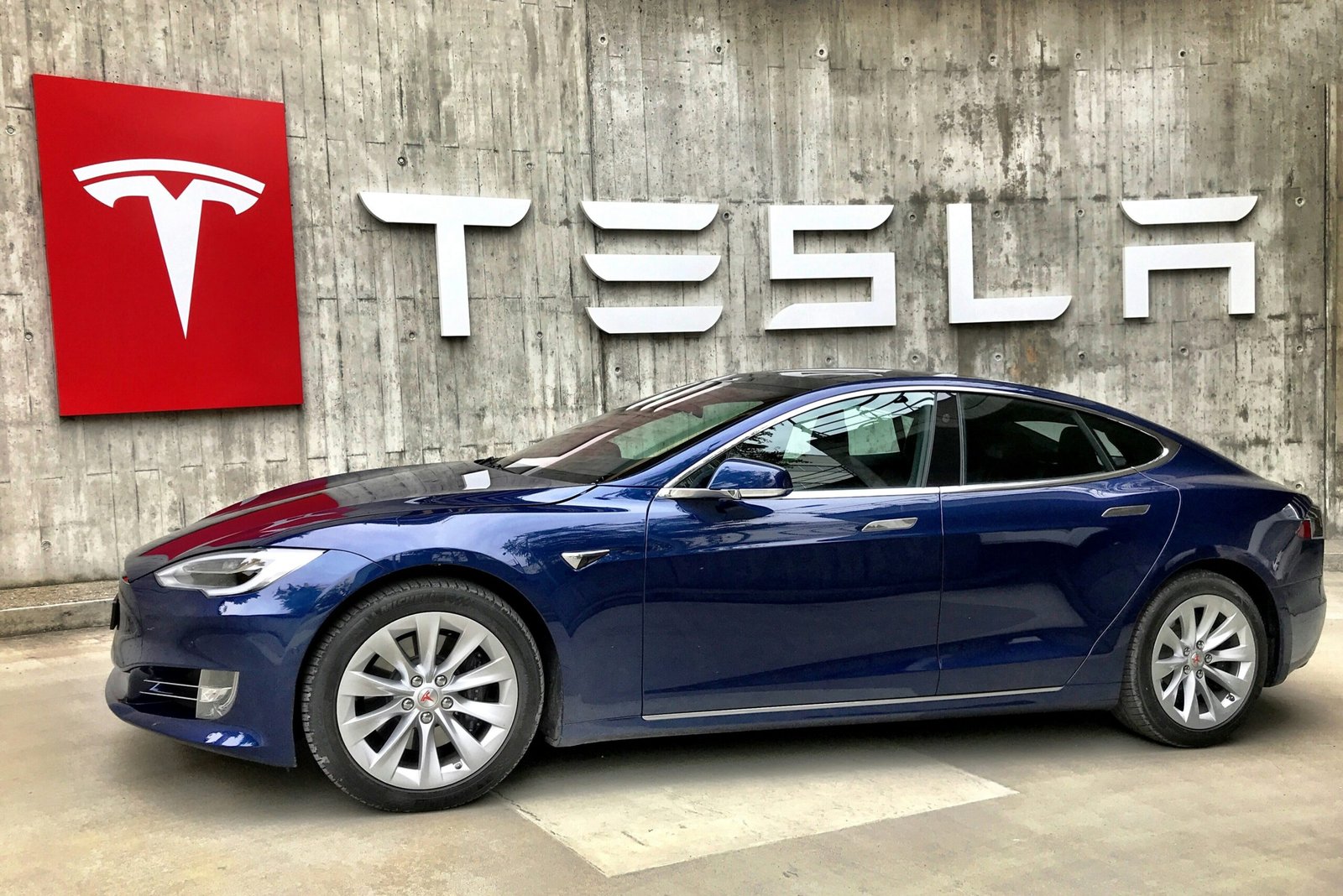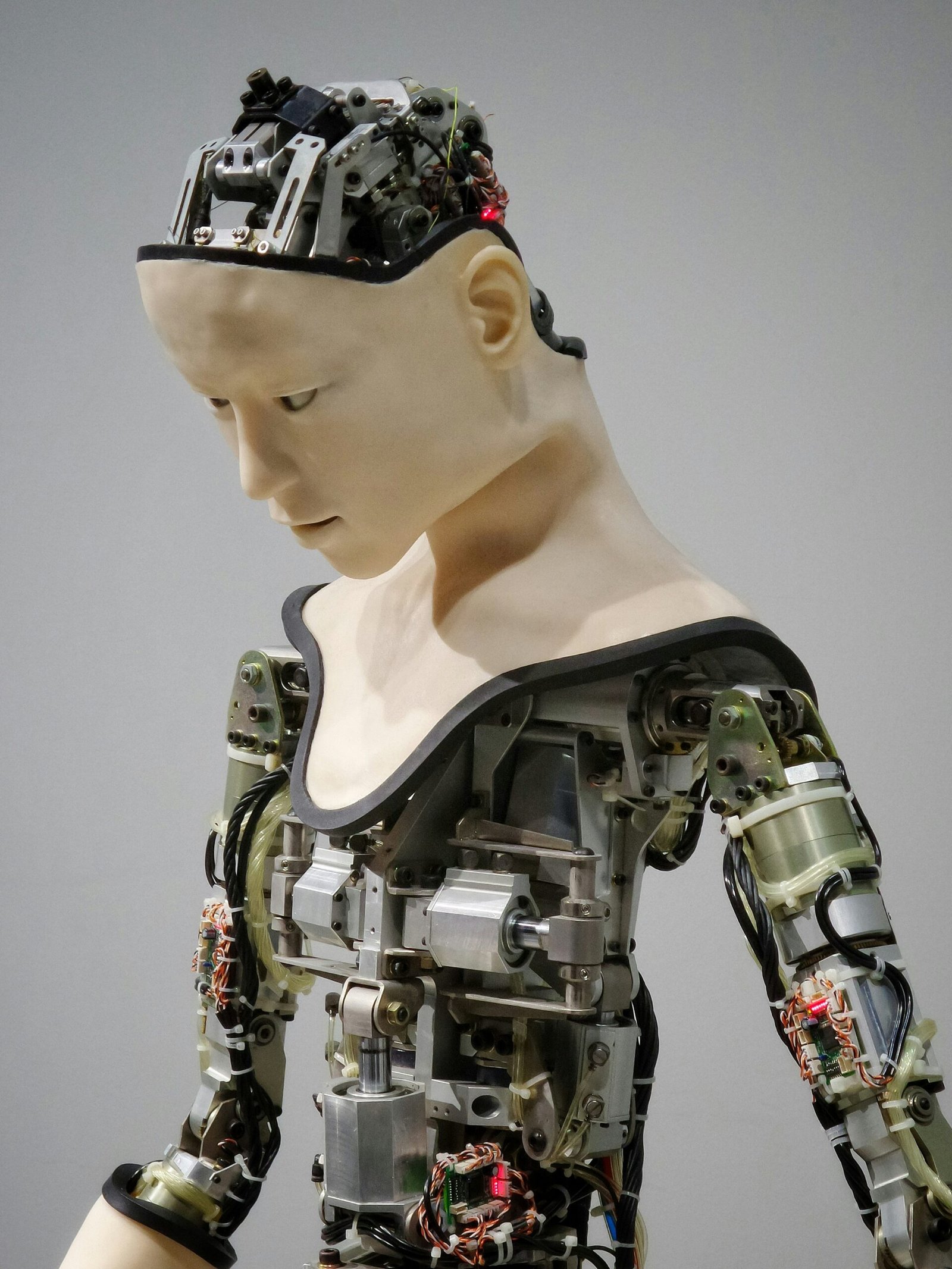Elon Musk’s Latest Controversy: Potential Ban on Apple Devices Over OpenAI Integration

Photo by Tesla Fans Schweiz on Unsplash
Introduction: Elon Musk’s Bold Stance
Elon Musk, the tech magnate behind revolutionary companies like Tesla, SpaceX, and Neuralink, is no stranger to making headlines with his audacious statements and decisions. Known for his visionary yet often provocative views, Musk has an unparalleled influence in the technology sector. His opinions and actions frequently ignite extensive debates, driving public discourse and often setting new industry trends.
Throughout his career, Musk has made bold predictions and taken controversial stances that have both captivated and polarized audiences. His advocacy for sustainable energy, colonization of Mars, and integration of artificial intelligence into everyday life exemplifies his forward-thinking mindset. However, these ambitious goals are frequently accompanied by contentious remarks, which keep Musk perpetually in the limelight.
The latest controversy revolves around Musk’s threat to ban Apple devices if Apple decides to integrate their operating systems with OpenAI technologies. This declaration has sent shockwaves through the tech community, given the significant market presence of both Apple and OpenAI. Musk’s apprehension towards OpenAI, stemming largely from his concerns about unchecked artificial intelligence, adds another layer of complexity to this unfolding narrative. As an early investor and co-founder of OpenAI, Musk’s current stance highlights his evolving perspective on the potential risks associated with advanced AI systems.
This situation underscores Musk’s unwavering influence and willingness to challenge even the most formidable players in the tech industry. His stance on Apple’s possible integration with OpenAI not only raises critical questions about the future of AI and consumer technology but also exemplifies his readiness to leverage his influence to steer technological advancements in what he believes to be a safer direction. As the story continues to develop, stakeholders across various sectors are keenly observing how this dispute will unfold and what implications it might hold for the future of technology.
Elon Musk, renowned for his ventures in electric vehicles with Tesla and space exploration through SpaceX, also played a pivotal role in the founding of OpenAI. Established in December 2015, OpenAI was born out of Musk’s vision to ensure that artificial intelligence (AI) benefits all of humanity. Elon Musk, along with other prominent figures, aimed to create an organization that would conduct cutting-edge research in AI while prioritizing safety and ethical considerations. As a co-founder, Musk provided financial support and strategic guidance, helping OpenAI to establish itself as a significant player in the AI research community.
OpenAI’s mission has always been centered around advancing digital intelligence in the way that is most likely to benefit humanity as a whole. This includes a commitment to developing AI technologies that are safe and broadly accessible. The organization operates as a research institute and has made significant strides in various AI domains, including natural language processing, robotics, and machine learning. Notable achievements include the development of the GPT language models, which have set new benchmarks in generating human-like text and understanding natural language.
Despite his initial involvement, Elon Musk began to distance himself from OpenAI around 2018. The reasons for this separation were multifaceted. Musk expressed concerns about the potential dangers of AI if not properly regulated and controlled, fearing that advancements could outpace safety measures. Additionally, he cited potential conflicts of interest with his other ventures, particularly Tesla’s AI initiatives related to autonomous driving. Consequently, Musk stepped down from OpenAI’s board but continued to advocate for responsible AI development and warned against the unregulated proliferation of advanced AI technologies.
Today, OpenAI continues to operate as an independent research entity, making significant contributions to the field of artificial intelligence. It remains committed to its founding principles of ensuring that AI technology is developed safely and benefits all of humanity. The organization’s work is widely recognized and has influenced both academic research and practical applications in various industries. As AI continues to evolve, OpenAI’s role in shaping the future of this transformative technology remains crucial.
Apple’s Venture into AI and the OS Integration
Apple has long been at the forefront of technological advancements, and its venture into artificial intelligence (AI) is no exception. The company has consistently invested in AI research and development, enhancing its products with innovative features driven by machine learning and AI. From the introduction of Siri, one of the earliest mainstream voice assistants, to the sophisticated computational photography capabilities in the latest iPhones, Apple’s commitment to AI is evident.
Recently, there have been announcements and speculations surrounding Apple’s potential integration of OpenAI technology into its operating systems. This move could signify a major leap for Apple, leveraging the advanced capabilities of OpenAI to further enrich user experiences. OpenAI’s cutting-edge models, known for their natural language processing and generation, could provide Apple’s ecosystem with unparalleled enhancements in areas such as voice recognition, personalized content delivery, and intelligent automation.
Integrating OpenAI into Apple’s OS could revolutionize how users interact with their devices. Enhanced AI-driven features could lead to more intuitive and responsive virtual assistants, capable of understanding and executing complex commands with greater accuracy. Additionally, the potential for improved predictive text and content suggestions could make Apple’s devices even more user-friendly and efficient. For instance, users could benefit from smarter email sorting, more relevant app recommendations, and personalized news feeds tailored to individual preferences.
Beyond individual user benefits, the integration of OpenAI into Apple’s ecosystem could have profound implications for the broader tech landscape. It could set new benchmarks for AI capabilities within consumer technology, prompting other tech giants to accelerate their AI endeavors. This competitive drive could lead to rapid advancements in AI technology, ultimately benefiting consumers through more innovative and intelligent products.
Overall, Apple’s potential partnership with OpenAI represents a significant step forward in the company’s AI strategy. As the tech world eagerly watches these developments, the promise of more intelligent and responsive devices is closer to becoming a reality, potentially transforming the way users interact with technology.
The potential ban on Apple devices, threatened by Elon Musk, carries significant implications across various dimensions. From a technical standpoint, implementing such a ban would require substantial coordination and could face numerous challenges. Technical feasibility hinges on the ability to effectively restrict device functionality and access, potentially through software updates or network-level restrictions. However, the decentralized nature of device usage and the global distribution of Apple products complicate enforcement mechanisms, making a comprehensive ban difficult to achieve.
Legally, the ramifications are equally complex. A unilateral ban could spark a series of legal battles, as Apple would likely contest any actions that significantly harm its business interests. Regulatory bodies may also intervene, scrutinizing the legality of such a ban under antitrust laws and consumer protection statutes. The legal landscape would become a battleground, with potential implications for industry regulations and future corporate conduct.
For Apple, the repercussions could be profound. A ban on its devices could erode consumer trust, as users may perceive the company as vulnerable to external pressures. Market dynamics could shift, with competitors potentially capitalizing on any perceived weakness. The financial impact could be substantial, affecting stock prices and investor confidence. Moreover, the broader tech industry could experience ripple effects, as stakeholders reassess partnerships and strategic alliances in light of such a high-profile conflict.
Additionally, Musk’s other ventures, including Tesla, could face unintended consequences. Tesla’s integration with Apple devices, particularly through apps and software interfaces, could be disrupted, potentially inconveniencing consumers and affecting user experience. The controversy might also divert attention and resources from Musk’s other projects, complicating operational priorities and strategic initiatives.
In summary, the potential ban on Apple devices proposed by Elon Musk presents a multifaceted issue with far-reaching implications. The technical, legal, and market dynamics involved suggest a complex and contentious path forward, highlighting the interconnected nature of today’s tech ecosystem.
Reactions from the Tech Community and Public
The announcement of Elon Musk’s potential ban on Apple devices due to their integration with OpenAI has sparked a wide range of reactions from both the tech community and the general public. Tech experts and industry analysts have been quick to weigh in on the implications of such a move, with opinions varying significantly.
Renowned tech analyst, Jane Doe, commented, “A ban on Apple devices by a prominent figure like Elon Musk could have substantial ramifications for both companies. It raises questions about the future of AI integration and the competitive landscape of the tech industry.” Similarly, John Smith, a leading software engineer, expressed concerns about the impact on innovation, stating, “This controversy highlights the growing tension between tech giants and the ethical considerations surrounding AI technology.”
On social media, the public’s response has been equally divided. The hashtag #MuskVsApple quickly began trending, with users expressing both support and criticism of Musk’s stance. Some argue that Musk’s actions are a necessary stance against the unregulated growth of AI, while others believe it to be an overreach that could stifle technological progress.
Notable figures in the tech community have also taken to social media to share their views. Tim Cook, CEO of Apple, tweeted, “Innovation and collaboration should drive us forward, not divide us.” On the other hand, OpenAI’s CEO, Sam Altman, emphasized the importance of ethical AI development, tweeting, “We must balance technological advancement with responsible practices to ensure a positive future.”
Public sentiment, as reflected in various online forums and discussion platforms, shows a mixture of apprehension and curiosity. While some users worry about the potential disruption to their daily lives, others are eager to see how this unfolds and what it means for the future of AI and technology at large.
Overall, the reactions to Elon Musk’s potential ban on Apple devices over OpenAI integration have been multifaceted, illustrating the complex and often contentious nature of technological advancements in today’s world.
The Role of Ethics in AI Integration
The integration of artificial intelligence (AI) technologies, such as those developed by OpenAI, into consumer devices brings forth a myriad of ethical considerations. As AI continues to evolve, it becomes increasingly important to address the potential risks and benefits associated with its implementation. One significant concern is privacy. AI systems often require vast amounts of data to function effectively, raising questions about how this data is collected, stored, and utilized. Consumers are rightfully wary of potential breaches and misuse of their personal information, which could lead to a loss of trust in AI-integrated devices.
Data security is another critical issue. With AI systems processing sensitive information, ensuring robust security measures is paramount. The risk of cyber-attacks and data leaks poses a substantial threat to both individuals and organizations. If AI technologies are not adequately safeguarded, they could become a target for malicious activities, leading to severe repercussions.
Furthermore, the impact of AI on human jobs cannot be overlooked. While AI has the potential to automate repetitive tasks and increase efficiency, it also raises concerns about job displacement. As machines become more capable of performing tasks traditionally done by humans, there is a fear that many workers could find themselves unemployed or forced to adapt to new roles. This transition period could cause significant economic and social disruptions, highlighting the need for policies that support workforce retraining and adaptation.
Corporate decisions regarding AI integration are heavily influenced by these ethical considerations. Companies must weigh the benefits of AI advancements against potential ethical pitfalls. Public opinion plays a crucial role in this process, as consumer trust and acceptance are vital for the success of AI-driven products. Ethical missteps can lead to backlash, affecting a company’s reputation and bottom line. Consequently, organizations are increasingly adopting ethical frameworks and guidelines to navigate the complex landscape of AI integration.
Possible Resolutions and Future Implications
The controversy between Elon Musk and Apple regarding the integration of OpenAI into Apple devices has sparked significant debate. One potential resolution could involve a direct negotiation between Musk and Apple’s leadership. Both parties have vested interests in reaching an agreement; Apple aims to maintain its market position and customer base, while Musk seeks to ensure the widespread adoption of AI technologies developed by OpenAI.
A plausible compromise might include Apple agreeing to integrate OpenAI with specific restrictions or guidelines to address any security and privacy concerns. For instance, Apple could implement stringent data protection measures and transparency protocols to safeguard user information while allowing the innovative AI features to enhance device capabilities. This middle ground would enable both companies to leverage their strengths without alienating their core values and customer trust.
Another potential outcome is the development of alternative AI solutions by Apple. If an agreement with Musk seems unattainable, Apple might opt to invest in or acquire other AI startups to develop proprietary technologies that rival OpenAI’s capabilities. This approach could mitigate dependency on external entities and foster Apple’s autonomy in the rapidly evolving AI landscape.
The long-term implications of this controversy are profound for the tech industry. A resolution that favors collaboration could set a precedent for future partnerships between major tech firms and AI innovators, promoting a more integrated and cohesive ecosystem. Conversely, if the dispute leads to a fragmented approach to AI integration, it could intensify competition, driving companies to independently advance their AI capabilities at a rapid pace.
Furthermore, this situation underscores the growing influence of corporate power dynamics in the tech sector. Companies like Apple and Musk’s ventures wield significant control over technological advancements and market trends, making their interactions crucial in shaping the future of AI integration. As the industry continues to evolve, the balance between collaboration and competition will be critical in determining the trajectory of technological innovation and its impact on society.
Conclusion: The Ongoing Saga of Tech Titans
The latest controversy surrounding Elon Musk and the potential ban on Apple devices over OpenAI integration underscores the intricate and high-stakes nature of the tech industry. As these industry giants navigate their respective paths, their decisions resonate far beyond their own corporate walls, influencing market trends, consumer behavior, and even policy-making. The unfolding events serve as a stark reminder of how intertwined technological innovation, corporate strategy, and ethical considerations have become.
Staying informed about these developments is crucial for anyone navigating the modern digital landscape. The dynamic interplay between tech titans like Elon Musk and Apple highlights the importance of vigilance and adaptability in understanding the broader implications of their actions. As we witness this ongoing saga, it is essential to consider not just the immediate impacts but also the long-term consequences that these decisions may herald for the industry and society at large.
This incident is not an isolated event but rather a chapter in a much larger narrative. It reflects the constant evolution of technology and the competitive strategies employed by leading corporations. The ethical dimensions of integrating advanced AI, like OpenAI, into consumer devices raise significant questions about privacy, security, and the role of AI in daily life. Such discussions are integral to shaping the future of technology and ensuring it aligns with societal values and expectations.
In an era where technological advancements occur at breakneck speed, and corporate maneuvers can shift paradigms overnight, remaining engaged and informed is more important than ever. The decisions made by today’s tech leaders will inevitably sculpt the contours of tomorrow’s digital world, making it imperative for stakeholders at all levels to stay abreast of these pivotal developments.






